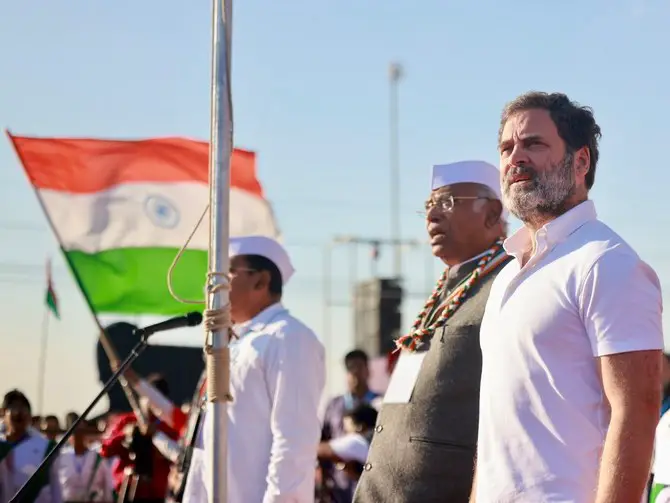In what many anticipated to be a seamless sweep for Prime Minister Narendra Modi and his right-wing, Hindu-nationalist alliance, the recent Indian elections delivered an unexpected narrative twist. Predictions had painted a picture of a resolute supermajority poised to grant Modi unprecedented authority to implement radical transformations. However, the reality that unfolded on election night narrated a different story—one where the ideals of pluralism and democracy stood their ground against the tides of authoritarianism.
As the votes were counted, it became evident that Modi’s Bharatiya Janata Party (BJP) was set to fall short of even a simple majority—a stark contrast to their goal of securing 400 seats in the Lok Sabha. This electoral outcome marks a significant departure from a decade of BJP dominance, now forcing Modi to rely on coalition partners to sustain governance.

The shift in electoral winds could be attributed to a confluence of discontent with Modi’s populist and polarizing strategies, which notably included aggressive Hindu nationalist rhetoric and policies that many critics saw as marginalizing the secular ethos of the nation. This sentiment was mirrored in the reduced tally of BJP’s seats, which dropped by 63, underscoring a partial rejection of Modi’s vision for a Hindu-first India.
Moreover, the opposition, particularly the Aam Aadmi Party (AAP), capitalized on widespread disillusionment. The arrest and subsequent release on bail of AAP leader Arvind Kejriwal, coupled with accusations of a BJP-led political witch hunt, galvanized the opposition. This unity turned the electoral battle into a crusade to safeguard India’s constitutional democracy against what they perceived as creeping authoritarianism.
The narrative of Modi’s infallibility was further challenged by political commentators and the general public alike. The elections demonstrated that Modi, once perceived as an indomitable force in Indian politics, was now a mere mortal in the political arena, subject to the will of a vibrant and vocal electorate. His portrayal as a god-sent leader, unassailable in the polls, was decisively humanized by the electoral verdict.
The electoral outcomes not only signify a check on Modi’s ambitions but also reinvigorate the Indian political landscape, highlighting its competitive nature. Despite the BJP-led National Democratic Alliance preparing to form the government, the elections served as a reality check for Modi, indicating that his popularity could not indemnify him against the consequences of perceived overreaches.
India’s democratic resilience was palpably affirmed as voters voiced their discontent with divisive politics and governance that skewed towards majoritarianism. The electoral verdict sends a resounding message advocating for inclusivity and moderation, urging a pivot back towards the foundational values of secularism and democratic pluralism.
As the BJP contemplates its next moves, the elections of 2024 will undoubtedly be remembered as a moment when the Indian electorate expressed its enduring commitment to a balanced and inclusive political discourse, rejecting extremism in favor of a more harmonious and democratic path forward.